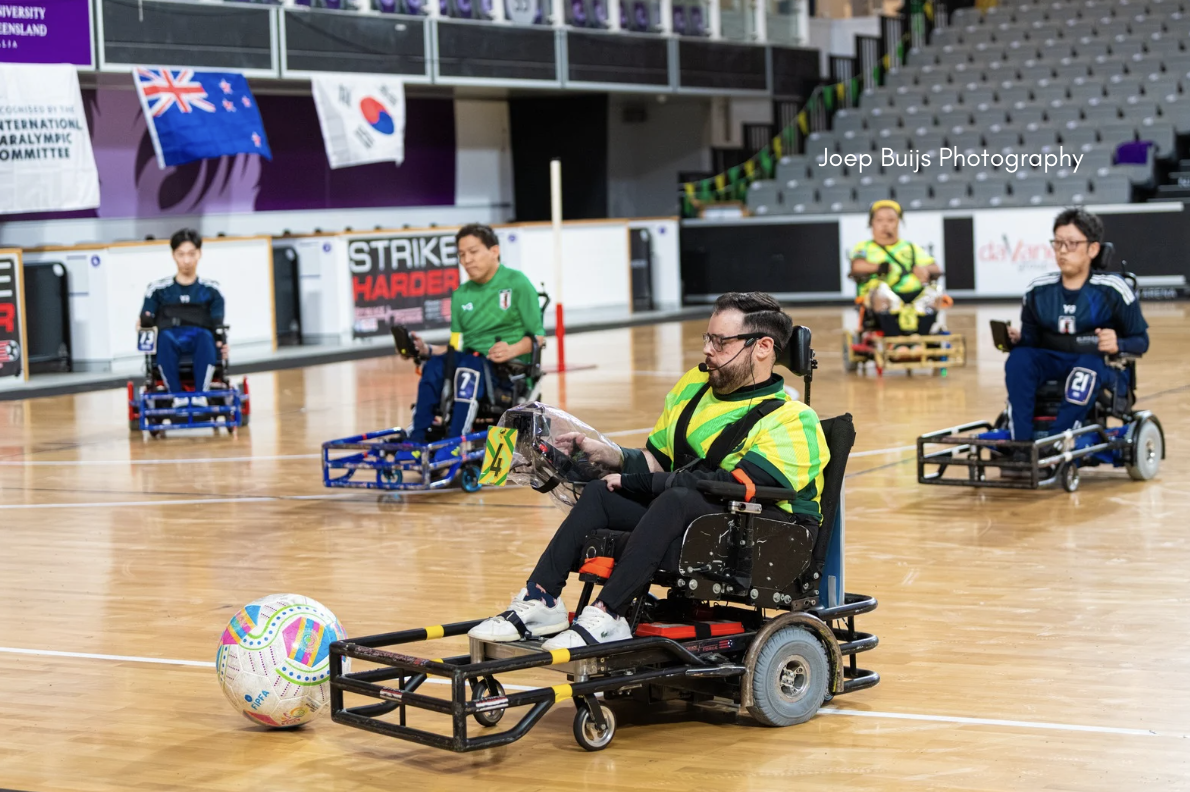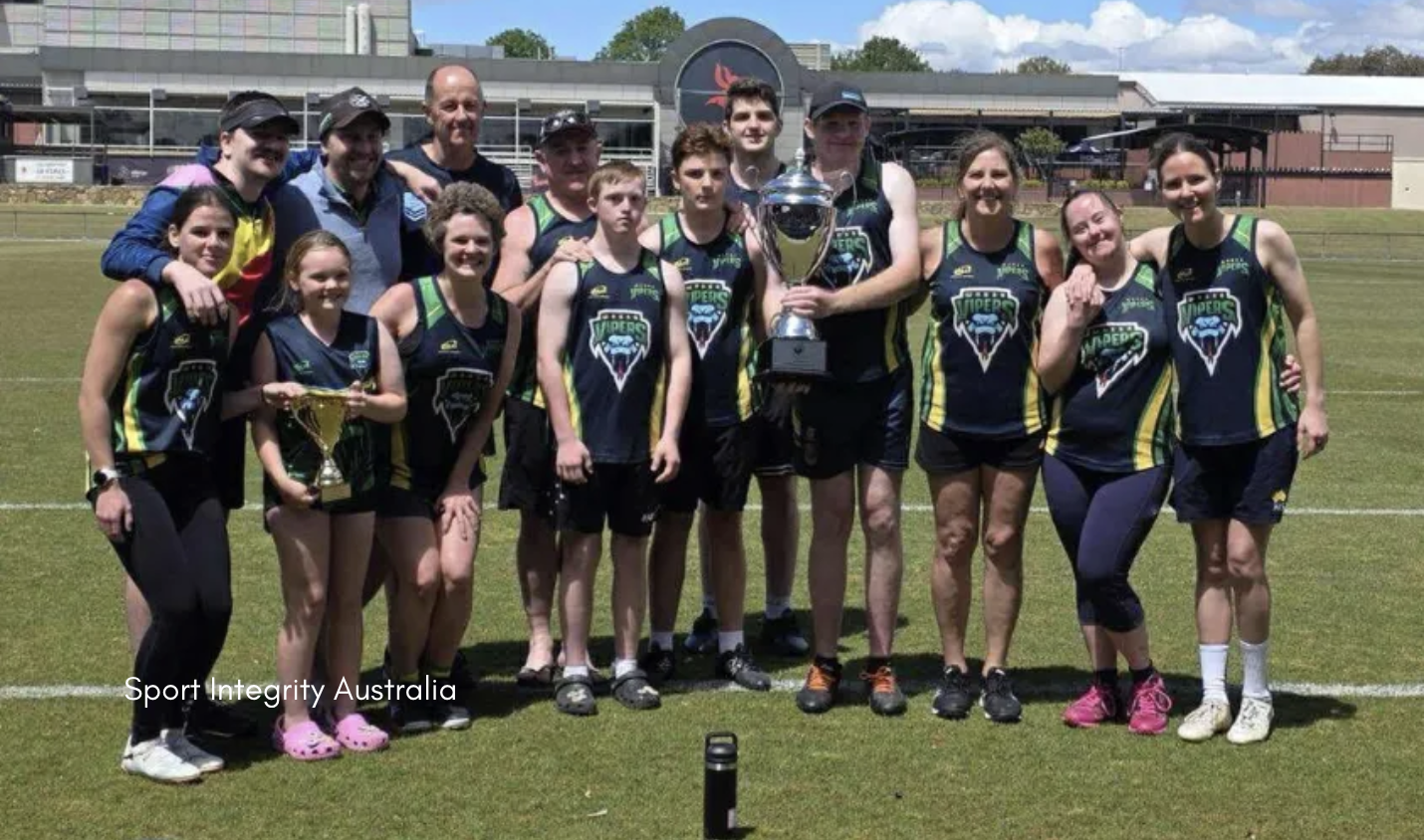Santo Bongiovanni’s story is a testament to the transformative power of sport for people with disability. His journey illustrates how Powerchair Football provides not only the joy of competition and physical activity but also a sense of belonging, independence, and lifelong skills. The challenges he faces and the barriers that remain highlight the urgent need for greater support, inclusion, and recognition within the sporting community. By elevating voices like Santo’s and advocating for equal opportunities, we move closer to a future where every athlete can pursue their ambitions, inspire others, and show that sport truly has the power to bring lasting change.
Behind every competition is a financial challenge that few see. “The costs of travel are extreme,” Santo explains. “It often means reaching out to friends and family, taking on extra work, or finding creative ways to make it possible. But it’s not sustainable in the long term.” Santo expresses concern that if national bodies cannot secure sufficient fundraising or sponsorship to support athletes, there is a real risk that many simply won’t be able to attend. “Making these trips happen requires above-average funding and significant levels of support not just for the athletes or the sport, but for the wider community of people with disabilities across Australia and around the world.”
“If the International Paralympic Committee voted Powerchair Football into the Paralympics for Brisbane 2032, it would be historic. It would send a message to every person with a disability, no matter their limitations, that they belong in team sport and our modern-day society, and that they, too, have the pathway to represent themselves and their country at an elite level. It would give people with disabilities the recognition that other athletes already receive, which is currently lacking for many of us. It would also provide a real, sustainable opportunity for international sport for children growing up with significant disability and requiring a power wheelchair for daily mobility.”
“That would be the pinnacle of my career and one of the greatest achievements of my life,” he says. “It would be a proud moment not only for me, but for everyone who’s been part of my journey over the years.” Santo believes that if Powerchair Football is able to be showcased as a dynamic team sport for people with significant disabilities and recognised on the biggest stage, it would bring a new level of equality and dignity to disability sport, and inspire the next generation of athletes to dream bigger and achieve more.
Santo’s ultimate dream is to represent Australia at the Paralympic Games, ideally at the Brisbane 2032 Games. As one of the few athletes to represent Australia in both Powerchair Football and Powerchair Hockey, Santo takes great pride in his dual role. “It’s an incredible opportunity,” he says. “Both sports, though different in style and structure, share many of the same fundamental skills. The crossover in areas like game theory, in-game situational management, chair skills, communication, and execution under pressure means that experiences in one strengthen performance in the other.” Representing Australia in two sports is an achievement that few can claim, but it comes with significant expectations. Santo credits a sense of responsibility to everyone who has helped him along the way and is determined to make them proud.
Santo’s message to policymakers and sports administrators is clear: one size does not fit all.
“People with disabilities have different barriers and preferences.”
He points out that “Powerchair sport serves a large part of the disability community, along with their friends and families who wouldn’t otherwise have access to a dynamic team sport that they can play socially, nationally or internationally.” Sports such as Powerchair Football help create pathways for people with disabilities to become community leaders and support greater inclusion and awareness. Santo adds, “To access these sports, awareness and funding are essential. Many of us need to travel with a companion, whether that’s a support worker or informal support to help us with day-to-day needs and to make it possible to achieve our on-court aspirations and sporting dreams, or simply to participate in society and sport. To achieve our goals, we often need companions or support workers alongside us. That’s not a luxury—it’s what makes competing, and even participation, possible.”
Contributing to Powerchair sport, for Santo, is about championing equality, dignity, and inclusion. He emphasises that athletes in this sport train and compete with the same pride as any others, yet face significant barriers, such as higher costs and the need for additional support just to participate. These include relying on others to dress for competition and organising transportation for both athletes and their specialised equipment. Santo believes that sponsors and funders often overlook the broader impact of their support. As he puts it,
“You’re contributing to more than just a sport—you’re helping drive disability awareness and community understanding of the abilities, achievements, and attributes of people with disabilities.”
“To kids starting out, don’t be afraid to have a go,” Santo urges. “To me, sport is such an important part of people’s lives, especially young people, and it should be accessible to all.” Powerchair sport helps fill this gap, offering children with significant disabilities the chance to compete both socially and competitively, build leadership and confidence, and enjoy the simple joys of teamwork and camaraderie. Santo believes that “those types of experiences will hold people in good stead for the rest of their lives.”
Santo’s journey in Powerchair sport has been one of discovery and empowerment. Growing up, he recalls watching his schoolmates play sports while he sat on the sidelines. That changed when he found Powerchair Football, a sport that opened doors he never thought possible.
“Powerchair Football is a huge part of my identity and daily purpose,” he says. “It has provided me with opportunities to travel overseas, build friendships around the world, and develop skills that help me every day—at work, in my community, and at home. Most of all, it gives me a way to be physically active and live free from the limitations I would otherwise encounter in day-to-day life.”
For Australian Powerchair Footballer Santo Bongiovanni, the sport is far more than a game; it represents independence, belonging, and adventure.


